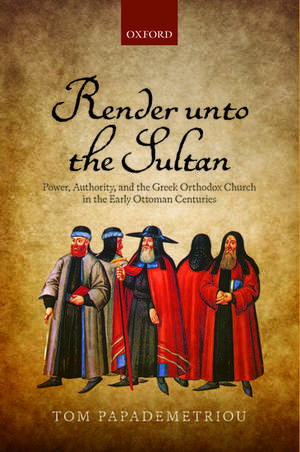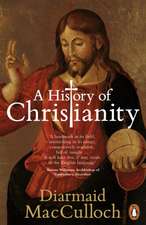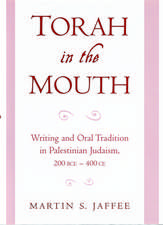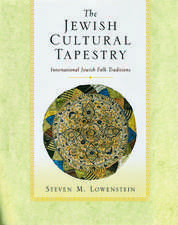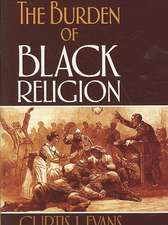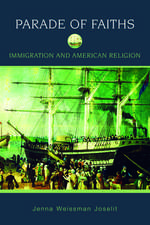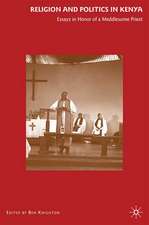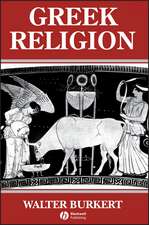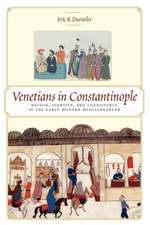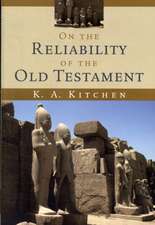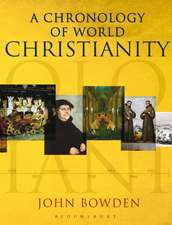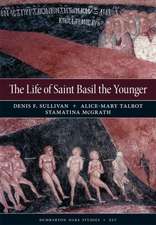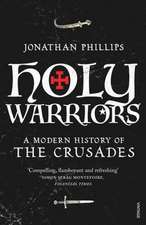Render unto the Sultan: Power, Authority, and the Greek Orthodox Church in the Early Ottoman Centuries
Autor Tom Papademetriouen Limba Engleză Hardback – 5 feb 2015
Preț: 672.47 lei
Preț vechi: 965.16 lei
-30% Nou
Puncte Express: 1009
Preț estimativ în valută:
128.72€ • 139.86$ • 108.19£
128.72€ • 139.86$ • 108.19£
Carte tipărită la comandă
Livrare economică 10-16 aprilie
Preluare comenzi: 021 569.72.76
Specificații
ISBN-13: 9780198717898
ISBN-10: 019871789X
Pagini: 274
Ilustrații: 9 black and white figures/illustrations
Dimensiuni: 162 x 241 x 22 mm
Greutate: 0.58 kg
Editura: OUP OXFORD
Colecția OUP Oxford
Locul publicării:Oxford, United Kingdom
ISBN-10: 019871789X
Pagini: 274
Ilustrații: 9 black and white figures/illustrations
Dimensiuni: 162 x 241 x 22 mm
Greutate: 0.58 kg
Editura: OUP OXFORD
Colecția OUP Oxford
Locul publicării:Oxford, United Kingdom
Recenzii
Tom Papademetriou's work here is excellent, and offers a much-needed fresh perspective to a tired old topic. He draws from an impressive wealth of sources, from Ottoman and Greek documentation, to European reports and travel accounts, with erudition and meticulousness, which inspires and convinces the reader.
a useful addition to the literature in its synthesis of the ongoing debate, its own insights and arguments and in the unpublished archival material that it brings to light.
Tom Papademetriou's book is a compact, well-written, and comprehensive study of the status of the Greek Orthodox Church under the Islamic Ottoman Empire. I strongly believe that as a textbook, it will be extremely useful for a wide variety of Ottoman or Middle Eastern history courses.
a significant contribution ... This book shows that official OttomanGreek Orthodox relations were from the beginning much more complex, nuanced and interesting than those implied by a regulated 'millet system'. This is a valuable study with wide relevance.
valuable contribution to the church history of the Ottoman Empire that sheds new light on an often neglected era.
a useful addition to the literature in its synthesis of the ongoing debate, its own insights and arguments and in the unpublished archival material that it brings to light.
Tom Papademetriou's book is a compact, well-written, and comprehensive study of the status of the Greek Orthodox Church under the Islamic Ottoman Empire. I strongly believe that as a textbook, it will be extremely useful for a wide variety of Ottoman or Middle Eastern history courses.
a significant contribution ... This book shows that official OttomanGreek Orthodox relations were from the beginning much more complex, nuanced and interesting than those implied by a regulated 'millet system'. This is a valuable study with wide relevance.
valuable contribution to the church history of the Ottoman Empire that sheds new light on an often neglected era.
Notă biografică
Tom Papademetriou is the Constantine and Georgeian Georgiou Endowed Professor of Greek History, and Executive Director of the Interdisciplinary Center for Hellenic Studies at The Richard Stockton College of New Jersey. A graduate of both Hellenic College (BA, 1988) and Holy Cross School of Theology (M. Divinity, 1992), Papademetriou received his Ph.D. in 2001 from Princeton University's Department of Near Eastern Studies in Ottoman History. He was awarded research fellowships by the Social Science Research Council and the American Research Institute in Turkey to conduct research in the Ottoman Archives and the Archives of the Ecumenical Patriarchate in Istanbul, Turkey. His research focuses on the history of non-Muslims under Ottoman rule, especially the relations of the Greek Orthodox Church and State in the early Ottoman centuries.
